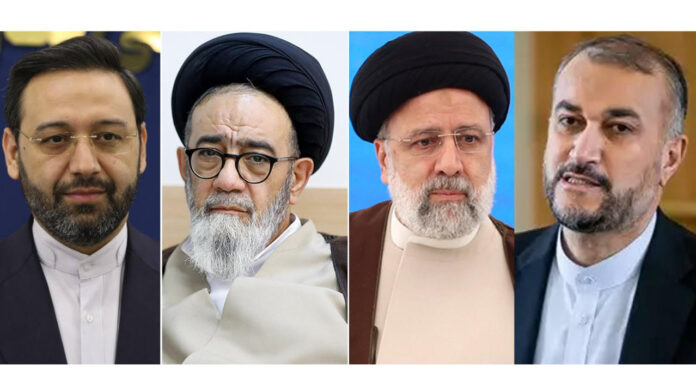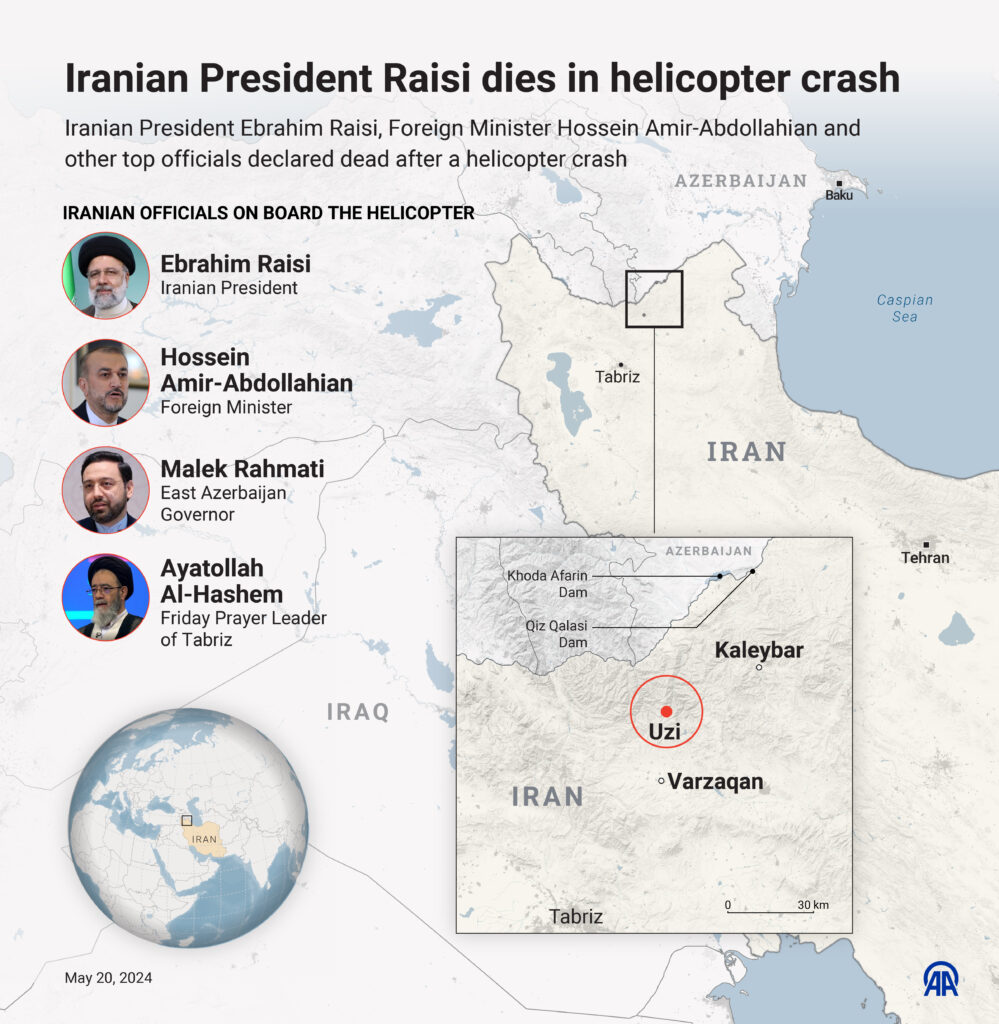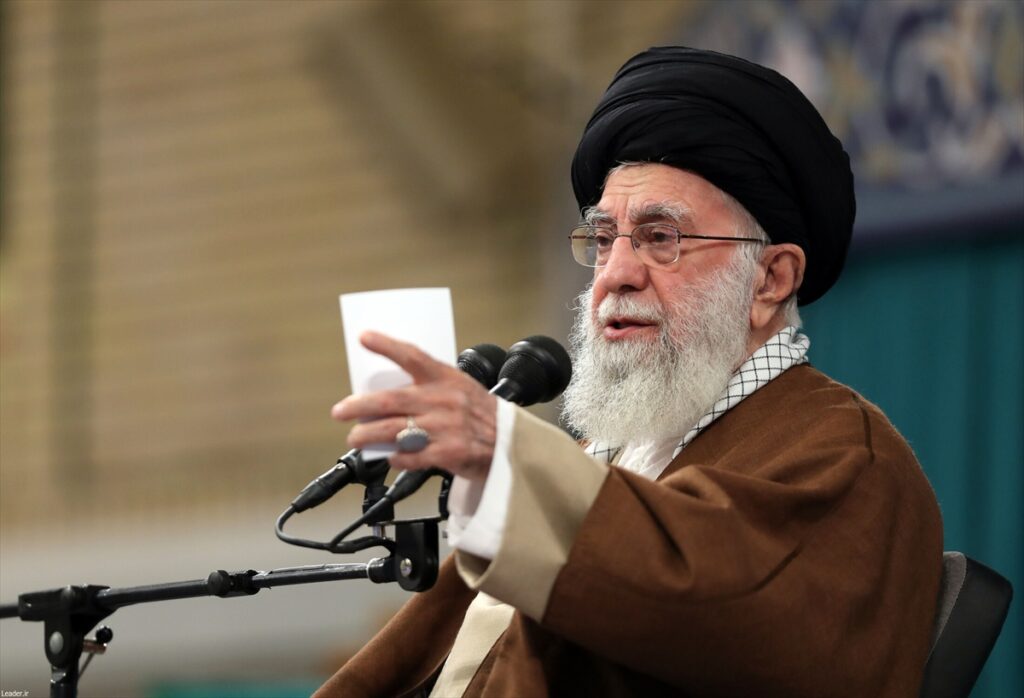
Iranian authorities confirmed early on Monday the deaths of President Ebrahim Raisi, Foreign Minister Hossein Amir-Abdollahian, and other officials in a helicopter crash in the country’s northwestern province.
Iranian Deputy President for Executive Affairs Mohsen Mansouri said in a statement on his X that all on board, including the president, foreign minister, accompanying delegation, and helicopter crew, died.
Earlier, Iranian state media also confirmed the deaths of all the president and all on board the helicopter that crashed in a mountainous area of East Azerbaijan Province on Sunday afternoon.
The helicopter was also carrying Iranian Foreign Affairs Minister Hossein Amir-Abdollahian, East Azerbaijan Province Governor Malik Rahmeti, and Tabriz Province Imam Ayatollah Ali Hashim.
Known as a jurist and religious figure, the late Iranian President Ebrahim Raisi was born on December 14, 1960, in Mashhad. Following the 1979 revolution, he began his career as a prosecutor in 1981.
Rising swiftly in his position, Raisi became Deputy Prosecutor General of Tehran at the young age of 25.
Raisi was part of a 4-member committee that, under the instruction of Iran’s revolutionary leader Ayatollah Ruhollah Khomeini, issued the death sentences for regime opponents imprisoned in 1988.
Subscribe to our newsletter and stay updated on the latest news and updates from around the Muslim world!
After Khomeini’s death and during Ali Khamenei’s tenure, Raisi rapidly climbed the ranks in state offices. He served as Tehran’s prosecutor general from 1989 to 1994.
In 1994, Raisi was appointed as the head of the State Inspectorate Organization, a position he held for 10 years.
In 2004, Raisi was appointed as the first deputy chief of the judiciary. He later became Iran’s attorney general in 2014 and was appointed as the head of the Imam Reza Shrine and Foundation in Mashhad by Khamenei in 2016.
Following the dismissal of Ayatollah Amoli Larijani from the judiciary chief position and his appointment as the head of the Expediency Discernment Council by Khamenei, Raisi assumed the vacant position of judiciary chief in March 2019.
In the presidential elections held on June 18, 2021, Raisi won by a large margin, securing 62% of the votes, thus becoming Iran’s 8th president.
Hossein Amir-Abdollahian
Hossein Amir-Abdollahian, noted for his conservative position, became Iran’s foreign minister in August 2021, after Mohammad Javad Zarif, whom he had previously served as deputy for three years.
The former foreign minister was born in 1964 and graduated from Tehran University with a degree in international relations in 1991. He was proficient in Persian, Arabic and English. He served as ambassador to Bahrain during the tenure of President Mahmoud Ahmadinejad.
Amir-Abdollahian later served as the deputy foreign minister for Arab and African Affairs during the terms of both Ahmadinejad and Hassan Rouhani.

Before becoming foreign minister, he held the position of Special Assistant for International Relations to Parliament Speaker Mohammad Bagher Ghalibaf.
During his tenure as foreign minister, Iran and Saudi Arabia agreed to restore diplomatic relations and reopen embassies in March 2023 following seven years of tensions between the two countries.
According to the Iranian Constitution, the first Vice President – Mohammad Mokhber – will now take over as the new president of the country for 50 days.
During this period, a high-powered council comprising the first vice president, the Speaker of Parliament and the chief of the judiciary have to make sure new elections are held.
Article 131 of the Iranian Constitution stipulates this, in the event of the death or illness of the sitting president.
“In the event of the death, removal, resignation, absence or illness of the president for more than two months, or in the event that the term of the presidency has ended and the new president has not yet been elected due to obstacles, the first vice president assumes his powers and responsibilities with the agreement of the leadership, and a council consisting of the speaker of the parliament, the head of the judiciary and the first vice president is obliged to arrange for early presidential elections to be held within a maximum period of fifty days,” says the article.
Ayatollah Khamenei
Meanwhile, Iranian leader Ayatollah Seyyed Ali Khamenei extended his condolences to the Iranian nation over the martyrdom of President Ebrahim Raeisi and his companions in a helicopter crash.
In a message on Monday, the leader announced five days of national mourning.
Ayatollah Khamenei said he received the bitter news of the martyrdom of the popular, competent and hardworking president and his companions with great sorrow.

He noted that the tragic incident happened when Raisi and his team were making an attempt to serve the Iranian people.
The entire period of responsibility of this noble and devoted man, both during the short term of the presidency and before that, was completely spent in non-stop efforts to serve the people, the country and Islam, he emphasized.
“Dear Raisi did not know fatigue,” Ayatollah Khamenei said, adding that the Iranian nation lost a sincere and valuable servant in this tragic incident.
He also noted that President Raisi preferred the satisfaction of people, which amounts to God’s satisfaction, over everything else.
Therefore, ingratitude and jibes of some ill-wishers did not deter him from working day and night to achieve progress and improve the situation, Ayatollah Khamenei said.
SOURCE: AA






















